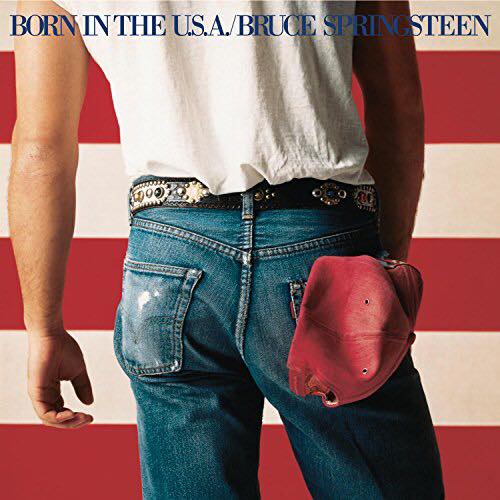Though enamoured of the electrifying synth that loops throughout the song, I did not learn about the backstory behind Bruce Springsteen’s pop album “Born in the U.S.A.” until I knew a word or two of English.
I was born a yellow man in a foreign land, to use Springsteen’s lyrics, thousands of miles from his hometown of Asbury Park, New Jersey, but we managed to obtain two copies of the 1984 Springsteen album back at home in China. One was purchased by my father in the ’90s, when China was an isolationist nation, largely separated from U.S. pop culture. I purchased my own copy much later, not knowing that my dad already owned one.
That’s how popular “Born in the U.S.A.” is.
Released in June 1984, Springsteen’s seventh album “Born in the U.S.A.” is the most commercially successful and critically acclaimed of his discography. With seven top-10 singles charted in the United States, and over 20 million sales certificated worldwide, the album was ranked 86th on Rolling Stone’s 500 Greatest Albums of All Time list, as they continue to influence artists today. Springsteen’s political attitudes expressed on this record still have a profound influence on today’s artists.
Regarded as Springsteen’s signature song, “Born in the U.S.A.” has been bound with political campaigns since its release. This began with Ronald Reagan tried to reduce the song title to a hollow slogan during his 1984 reelection when he assumed the song to be a jingoistic anthem. The singer-songwriter later claimed that the eponymous song was written to be an anthem indeed, but not at all jingoistic; while the album is undoubtedly political, Springsteen insisted that it was not at all Republican.
The narrative lyrics of “Born in the U.S.A.” tell the story of an U.S.-born man who was sent to fight in the Vietnam War, only to return home to unemployment and mistreatment by the government, with “nowhere to run, ain’t got nowhere to go.” This story is inherently critical of the U.S’s participation in the war, and the inadequate respect paid to the veterans. Vietnam was a major pushback in the U.S.’s ideal of manifest destiny.
Fast forward to 2008 when Barack Obama played “Born in U.S.A.” as he accepted the Democratic nomination for president at Denver’s Invesco Field. His beliefs, such as his desire to end the war in Iraq, are more in tune with the meaning of “Born in the U.S.A.” than Reagan’s in the 1980’s. Its use as such is ironic because Springsteen never explicitly took sides; he has very personal views on the wars abroad, unemployment, racial conflicts and other ever-hot topics. Springsteen’s ideas are scattered all over the album and are more appealing than ever as today’s generation continue to carry out the true ideals of his U.S.A.
Springsteen made a video clarifying the meaning of the song with footages of unemployed veterans and Asian children during the Vietnam war. The video, along with that of “Dancing in the Dark,” helping Springsteen build his iconic average-Joe rocker image.
Put concisely, the fad of the ’80s was “Born in the U.S.A.”
When I asked my father about how much the U.S. political propaganda on this album affected his appreciation of it, he responded: “Not at all. I was attracted to it only because it sounded good and very rock ‘n’ roll.”
While these are all heavy topics, they’re acknowledged through the political and historical insight the music provides. This album convinced me that tragic events, while difficult to confront, become more approachable when represented through art.
Email Jude Zhu at [email protected].























































































































































